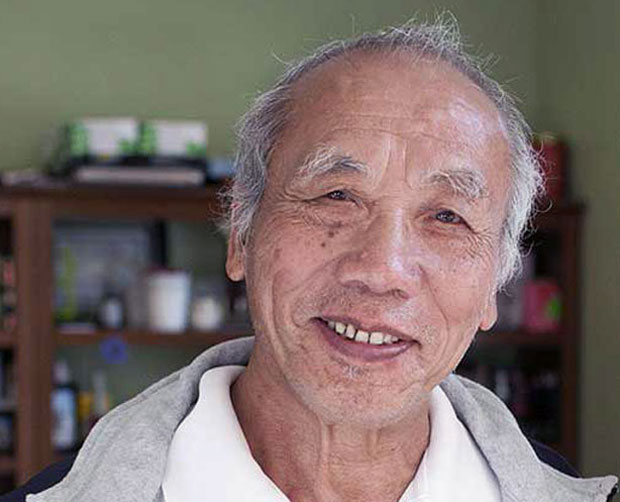 Editor’s note: The following is a translation of Chapter 14 of the book If the U.S.and China Go to War《假如中美开战》 by the author and analyst Chen Pokong. The current volume was published in Chinese in 2013 and was later translated to Japanese.
Editor’s note: The following is a translation of Chapter 14 of the book If the U.S.and China Go to War《假如中美开战》 by the author and analyst Chen Pokong. The current volume was published in Chinese in 2013 and was later translated to Japanese.
The chapter sketches the hypothetical beginnings of a conflict scenario between the United States and China. In it, the U.S. responds to provocative Chinese cyberattacks by launching one of its own, tearing down the Great Firewall. In response, Chinese authorities clamp down Internet access completely, which America quickly responds to. Ultimately, regime-organized street violence endangers the lives of American consular staff, and U.S.-China relations quickly descend from the current modus vivendi to outright hostilities.
While both the United States and China can be expected to avoid going to war, it’s by no means difficult to imagine a scenario in which such a war might break out. Let’s consider such a development from the perspective of a young Chinese computer technician named Xiaolu:
After returning home from work one Friday evening, Xiaolu follows his usual practice of turning on his home computer and preparing to access his favorite overseas websites through proxies that will help him break through the Chinese government’s internet firewall. To his great surprise, he finds himself able to freely browse the Voice of America website without a proxy. He tries the BBC Chinese-language website, and then Radio Free Asia, Epoch Times, Boxun, the Chinese-language websites of the New York Times and the Wall Street Journal. . . surfing all of them with ease, he wonders if there’s some bizarre fluke in the system. He quickly telephones a friend and tells him to give it a try, and the friend reports the same experience. Overjoyed, Xiaolu contacts all of his friends and tells them to log onto the internet as fast as they can.
The situation continues the next day, and China’s streets and microblogs are abuzz with the news. People wonder if the Chinese government has suddenly decided to lift its internet blockade, and if this means political reform has also been launched.
Xiaolu stays glued to the internet all the next day and evening, too excited to sleep until he finally drifts off near dawn. By the time he awakens, the sun is high and the clock shows that noon is approaching. Luckily it’s still the weekend, and Xiaolu doesn’t need to be at work. Rolling groggily out of bed, he slouches over to his computer and goes online again, only to see a blank wall. Not only the foreign websites, but even China-based websites have disappeared and have been replaced with a uniform message of “Page not found.” Shocked, disheartened and angry, Xiaolu wonders what happened. He turns on his television just in time to hear a CCTV presenter read out this news bulletin:
“The United States has used the pretext of alleged Chinese hacker attacks on American websites to blame on the Chinese government and People’s Liberation Army. These baseless accusations originate from the pathological fantasies of certain individuals in the United States, and we have always categorically refuted them. The United States is now using the pretext of ‘freedom of information’ to interfere with China’s normal internet operations and oversight. This is a genuine cyberattack and a blatant cyberinvasion. It is a plot to overturn the Chinese government.
Interfering with and sabotaging China’s internet is a brazen violation of Chinese sovereignty and dignity. It is a last-ditch effort by American hegemonism to obstruct China’s rise following its failure to impose ‘peaceful evolution.’”
Xiaolu now understands that his earlier access to overseas websites was due to the United States playing a technological wild card that destroyed China’s internet blockade. His current inability to go online is due to the Chinese government taking the drastic step of cutting off all internet access after losing its “Great Firewall” to America’s technical superiority.
Through his shortwave radio, Xiaolu hears an announcement by the U.S. government:
“Safeguarding freedom of expression and freedom of information is a universal value. The United States of America firmly upholds the Chinese people’s freedom of information, the deprivation of which is an infringement of fundamental human rights. . . .”
Related reports and discussion show that the cyber operation, codenamed “Airborne Freedom” and launched by the United States, is in fact retaliation for a cyberattack by China. China has for some time been carrying out cyberattacks and cyberespionage against U.S.-based websites, and repeated warnings from Washington to end the attacks have met with only temporary pullbacks by Beijing, followed by renewed onslaughts. Reaching the end of its patience, the United States has finally decided to take action, and a full-scale cyberwar has been launched between China and the United States.
With internet access cut off, Chinese netizens begin taking to the street to express their indignation, their eyes directed straight forward or upward to signify their silent protest. The Chinese government issues an announcement: “The relevant departments have cut off internet access only as a temporary measure and as the only option. The United States, which launched a cyberattack to interfere with and sabotage normal internet operations in China, must take full responsibility.”
On the third night, internet access is miraculously restored. Strangely, however, unlike before, only overseas websites can be accessed, and almost no China-based websites. Xiaolu is initially baffled, but after surfing overseas websites, he gains an understanding of how the situation has developed.
It turns out that after the Chinese government cut off all internet access, the United States used satellite technology to provide wireless internet service to China. Operation Airborne Freedom has entered its second phase. The U.S. government explains its rationale: “We first of all need to ensure that American organizations in China as well as the U.S. Embassy and consulates can continue to access the internet. . . . At the same time, we are helping the Chinese people to freely access information. . . .”
The Sina and Sohu microblogging websites that Chinese netizens normally use have ceased operation, and have been replaced by internationally dominant social media such as Facebook and Twitter. The Chinese Baidu search engine has stopped working, but Google is available as a substitute, and Chinese netizens rejoice.
The next day, the Chinese government plays a new card. The State Council issues a “Notice Regarding the Suspension of Internet Access”:
“Malicious interference and sabotage by hostile overseas forces resulting in severe chaos in the arrangements for our country’s internet management has aroused mass outrage among the people. In order to ensure state security and normal information access, from this day forward the relevant departments will carry out comprehensive inspection, maintenance and rehabilitation of the internet. During this time, internet access will be suspended throughout the country.
Specific provisions are as follows:
1. Any work unit or individual who without authorization accesses the internet will be subject to confiscation of his computer, a fine, dismissal from employment or other penalties.
2. Any individual who uses the internet to create or spread rumors or to transmit reactionary information, and in particular any individual who incites opposition or subversion of the government, will be held criminally liable.
3. All internet cafes will be temporarily closed until further notice.
4. Sales of computers must be registered under the purchaser’s name. . . .”
Over the next few days, China’s netizens continue to enjoy access to overseas websites, and there is an explosive increase in satirical comments about the Chinese government on Facebook, Twitter and overseas Chinese internet forums. Rumors spread of police in some localities going door-to-door to examine internet browsing histories. Official media begin reporting on some people being investigated and having their computers confiscated. Overseas media report that rights defenders are being summoned and warned by the police, while some dissidents have been placed in criminal detention on allegations of using the internet to create or spread rumors to incite subversion of the government.
Mobilized by netizens through Facebook and Twitter, increasing numbers of people begin standing in the streets with their eyes directed forward or upward in what come to be known as “stand-ins.” Internet posting proclaim: “The Chinese people have stood up!” As another day passes, police are mobilized in a massive operation during which they physically push people away from “stand-ins.” Some protesters who resist are arrested. Four police officers grab Xiaolu by his arms and legs and carry him off as he struggles and yells out, “The Chinese people have the right to stand up!”
China’s PLA Daily publishes a commentary entitled “Cyberinvasion is a War of Aggression,” which states:
“We must point out that cyberinvasion is a war of aggression. We sternly warn the American hegemonists that today’s China is not the China of 1840; today’s China is not a China that can be bullied or trampled upon. Under the leadership of the great Chinese Communist Party, we have achieved economic liftoff and military modernization that will bring about the great revival of the Chinese people. Our country and our people have the capacity to defend our homeland. In the face of serious provocation, the full force of the Chinese People’s Liberation Army will resolutely follow the Party’s command and is prepared to go to war at any time in retaliation against any who dare aggressive action against our country’s sovereign rights and interests. We are prepared at all times to fight and to emerge victorious in repelling a frontal assault by the invaders. . . .”
In contrast to this hard line, the tone of some official scholars is more temperate. In an Associated Press interview, a professor of international relations at Renmin University of China appeals for calm on both sides. He urges the Chinese and U.S. governments to sit down for a face-to-face exchange of views on the mutual accusations of cyberattacks, and to resolve the conflict through dialog and negotiation to prevent the conflict from escalating out of control.
Prohibitions on internet access are implemented in government organizations, state-owned enterprises and all schools, libraries and other public bodies. Even so, how can the authorities control 500 million netizens and 300 million bloggers? Most netizens ignore the prohibitions and continue to access the internet at home. Internet access is unstable and intermittent, but the wireless internet service that the United States is providing to China has not been cut off.
After “stand-in” protests against the Chinese government have been suppressed for two days, anti-American protests suddenly break out in Beijing, with hundreds of people gathering around the U.S. embassy, shouting out anti-American slogans, denouncing the United States for sabotaging China’s internet and demanding an end to the U.S. cyberinvasion. Similar protests quickly follow in Shanghai, Guangzhou, Chengdu, Wuhan and Shenyang, where people gather around U.S. consulates and yell out slogans while waving the five-starred red flag of the People’s Republic of China. “Down with American hegemonism!” “We vehemently denounce American sabotage of China’s internet!” “Resolutely beat back the U.S. cyberinvasion!” “Creating chaos in China has ulterior motives!” Given the uniformity of the slogans and banners throughout the country, outsiders quickly realize that these protests have been orchestrated by the Chinese government.
Further anti-American protests break out in other cities over the next two days. The number of participants grows from hundreds to thousands, and in Beijing and the rest of China’s largest cities, the protests rapidly evolve into smashing and looting. People begin throwing rocks, bricks and bottles at U.S. consulates; some set American flags on fire and toss them into consulate compounds, while others overturn vehicles and set them alight. Black smoke rises everywhere as cheers break out among the crowds. Bystanders scream in terror and run off.
Apart from occasionally yelling or motioning for people to desist, the Chinese police officers stationed around the consulates spend most of their time standing idly about as rocks, bricks and bottles fly over their heads into the consulate compounds, and no one is arrested.
On Facebook and Twitter, netizens all over China expose the identities of local police officers, city managers and joint defense officers who are masquerading ordinary citizens to lead protests and take part in the smashing and looting.
Washington sends a diplomatic notice to Beijing strongly protesting the violent demonstrations at the U.S. embassy and consulates, and demanding that the Chinese government take measures to protect American citizens and facilities. A foreign ministry spokesman responds that the Chinese government does not approve of the radical actions around the consulates and appeals to the Chinese public for calm. At the same time, he points out, “The problem must be resolved at its source”; the U.S. government needs to immediately cease its cyberinvasion and end its interference and sabotage of China’s internet before peace can be restored.
The news media report that a U.S. aircraft carrier, the USS George Washington, has led the Seventh Fleet out of Japan’s Yokosuka naval base toward the East China Sea to form a joint force with the USS Nimitz battle group patrolling the South China Sea.
As night approaches, the U.S. consulate in Chengdu comes under siege, and someone starts hurling Molotov cocktails into the consulate compound and main building. The consulate catches fire, and flames spread rapidly as smoke billows against the night sky. Suddenly excited and terrified cries go up: “He’s dead! He’s dead!”
International media report that the U.S. consul general stationed in Chengdu has fallen victim to the violent protests. Foreign governments issue statements condemning the atrocity. It’s reported that he attempted to lead consulate staff out the back door to safety, only to be discovered by the protesting mob. Chinese nationals employed at the consulate came under verbal and physical attack by protesters cursing them as “traitors” and “American running dogs.” When the consul general tried to protect two female staff, he was struck in the head with a brick. Also falling victim were five consular staff, including two Americans and three Chinese, all of whose bodies were set alight by the screaming mob.
The next day, five more American aircraft carriers, including the USS Abraham Lincoln, USS Ronald Reagan, USS Carl Vinson, USS Harry S. Truman and USS George H.W. Bush, converge and move at speed toward Chinese waters.
The Sino-U.S. War has begun. . . .
Chen Pokong is a veteran of the Tiananmen Square democracy movement; he has authored over ten books, writes a regular column for Radio Free Asia, and is regularly invited to speak on Voice of America Chinese. This chapter was translated by Stacy Mosher, a translator and editor based in New York City.
Image: Pixabay/Public domain
Source: http://nationalinterest.org/feature/how-bloody-us-china-war-could-start-16383
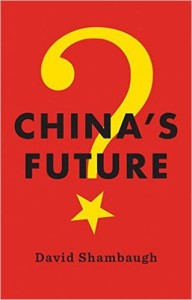 David Shambaugh’s slim volume, China’s Future, stands in stark contrast to the conventional wisdom on China. Indeed, it is hard to discuss ‘China’s future’ without immediately speaking of ‘China’s rise.’ The majority of contemporary literature on China focuses on its military modernisation and ‘string of pearls‘ expansion into the South China Sea. The Interpreter devoted an entire debate series to unpredictability in China’s maritime strategy in 2014. Continue reading
David Shambaugh’s slim volume, China’s Future, stands in stark contrast to the conventional wisdom on China. Indeed, it is hard to discuss ‘China’s future’ without immediately speaking of ‘China’s rise.’ The majority of contemporary literature on China focuses on its military modernisation and ‘string of pearls‘ expansion into the South China Sea. The Interpreter devoted an entire debate series to unpredictability in China’s maritime strategy in 2014. Continue reading 
 Editor’s note: The following is a translation of Chapter 14 of the book If the U.S.and China Go to War《假如中美开战》 by the author and analyst Chen Pokong. The current volume was published in Chinese in 2013 and was later translated to Japanese.
Editor’s note: The following is a translation of Chapter 14 of the book If the U.S.and China Go to War《假如中美开战》 by the author and analyst Chen Pokong. The current volume was published in Chinese in 2013 and was later translated to Japanese.
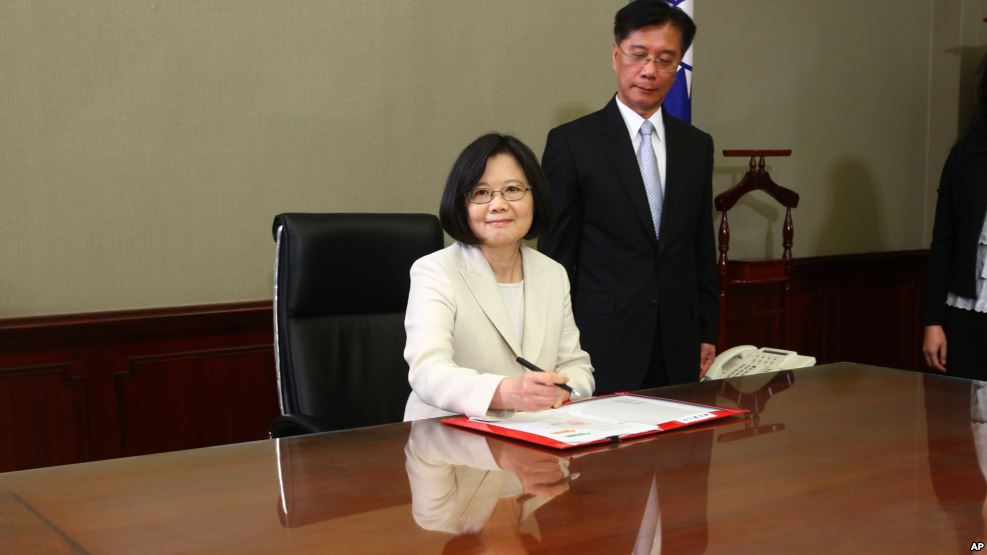

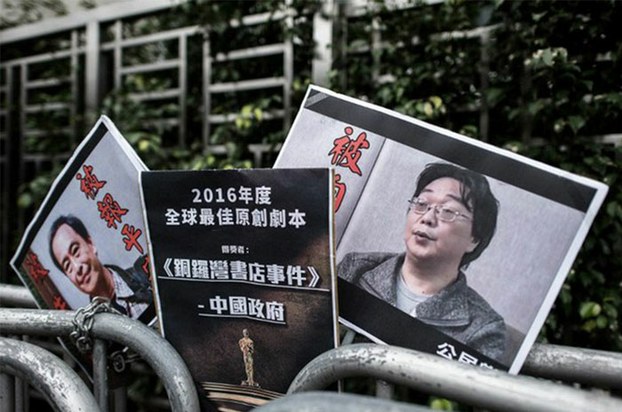
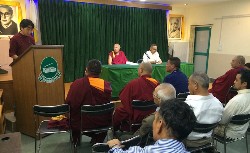 DHARAMSHALA, May 18: The Tibetan translation of the book ‘Dharamsala and Beijing: The Negotiations That Never Were’ by noted scholar Claude Arpi was launched today by the Minister of Education (Kalon) Ngodup Tsering at the Library of Tibetan Works & Archives (LTWA) in Gangchen Kyishong.
DHARAMSHALA, May 18: The Tibetan translation of the book ‘Dharamsala and Beijing: The Negotiations That Never Were’ by noted scholar Claude Arpi was launched today by the Minister of Education (Kalon) Ngodup Tsering at the Library of Tibetan Works & Archives (LTWA) in Gangchen Kyishong. 